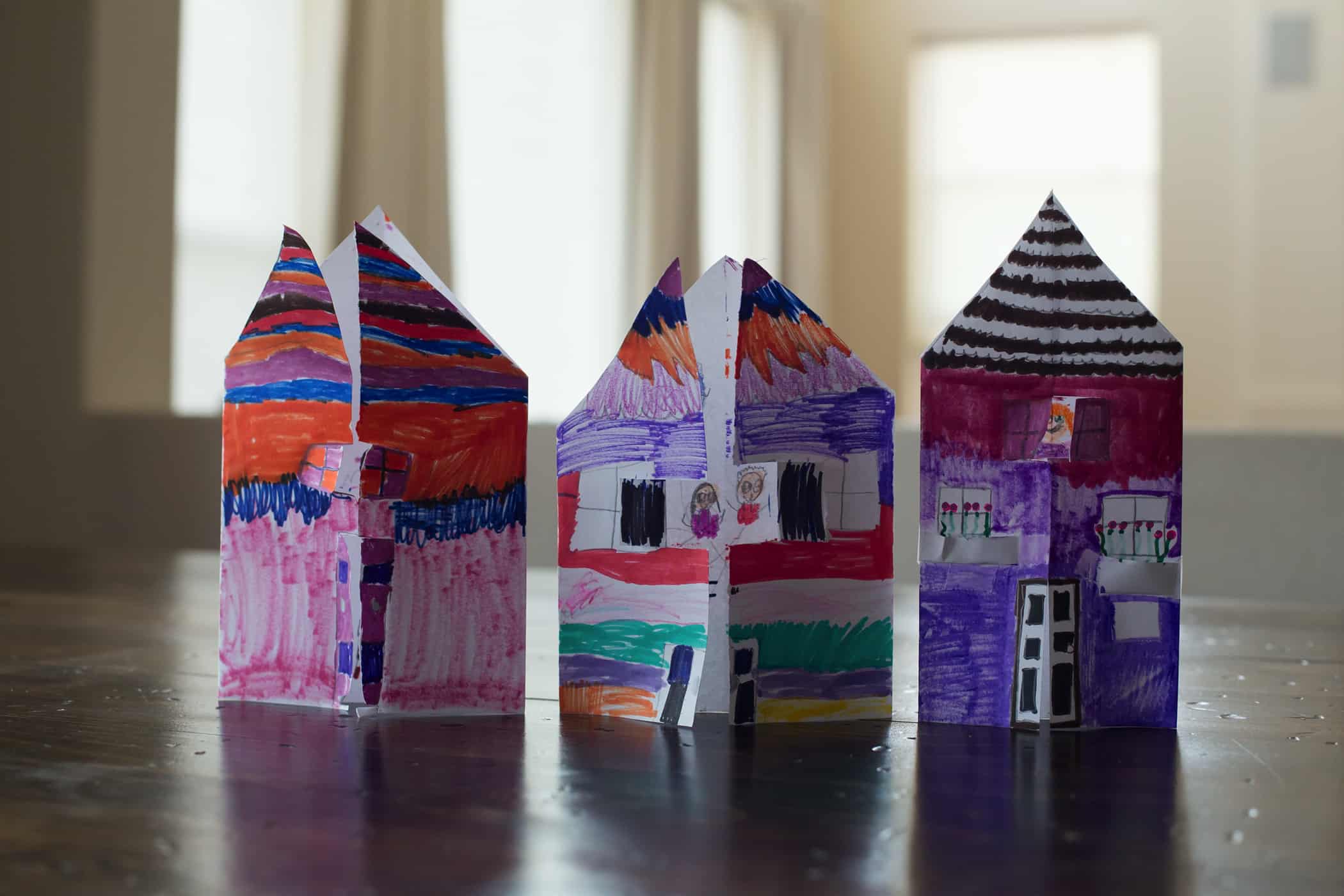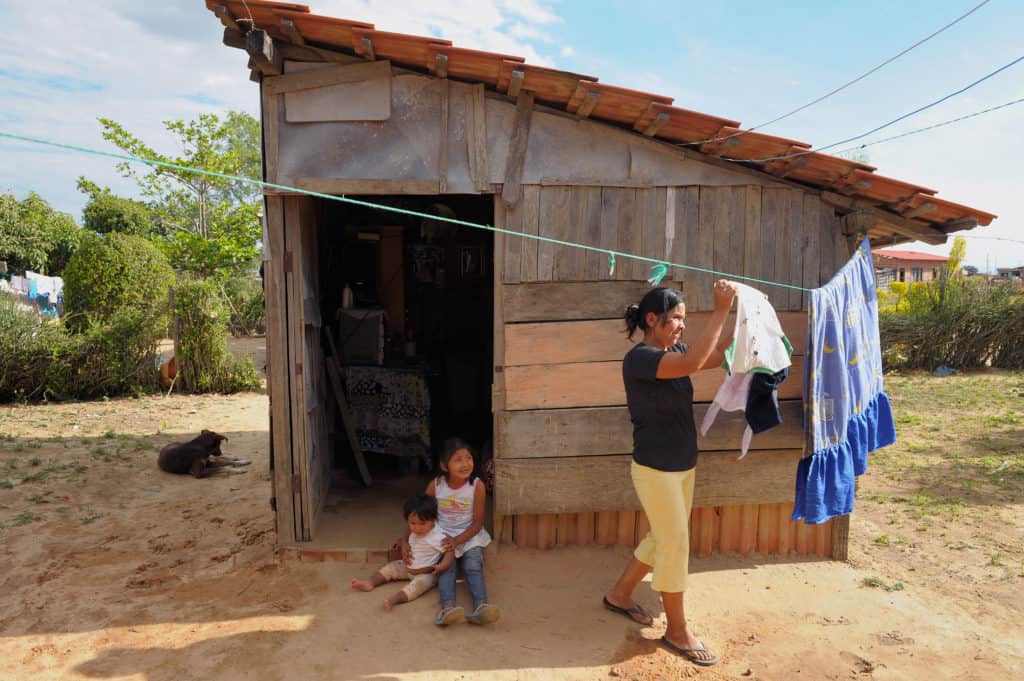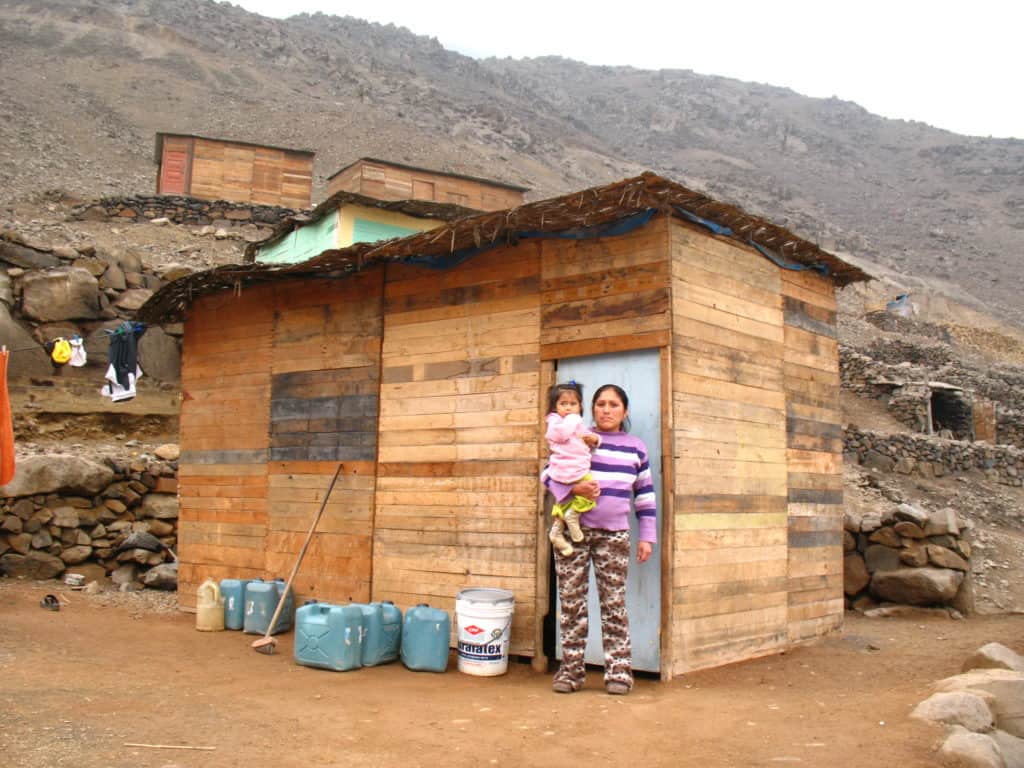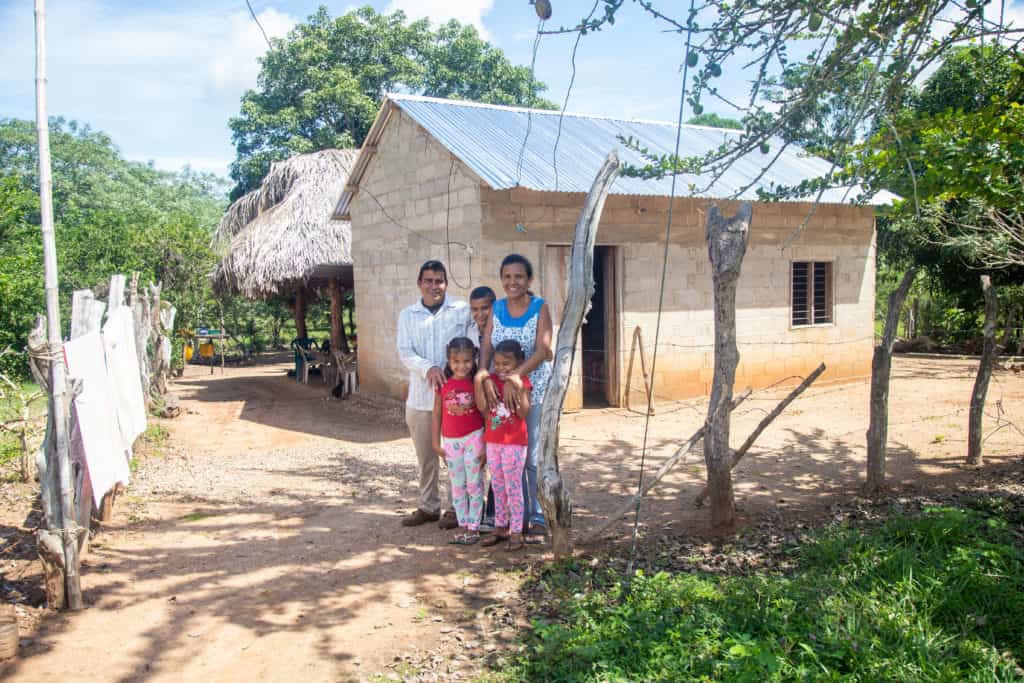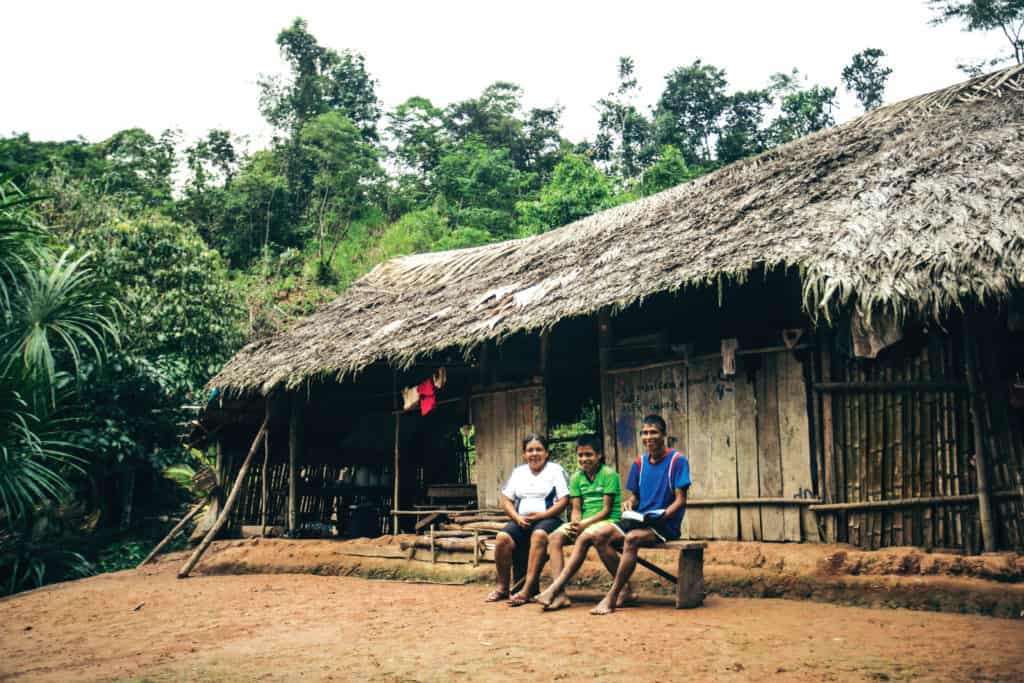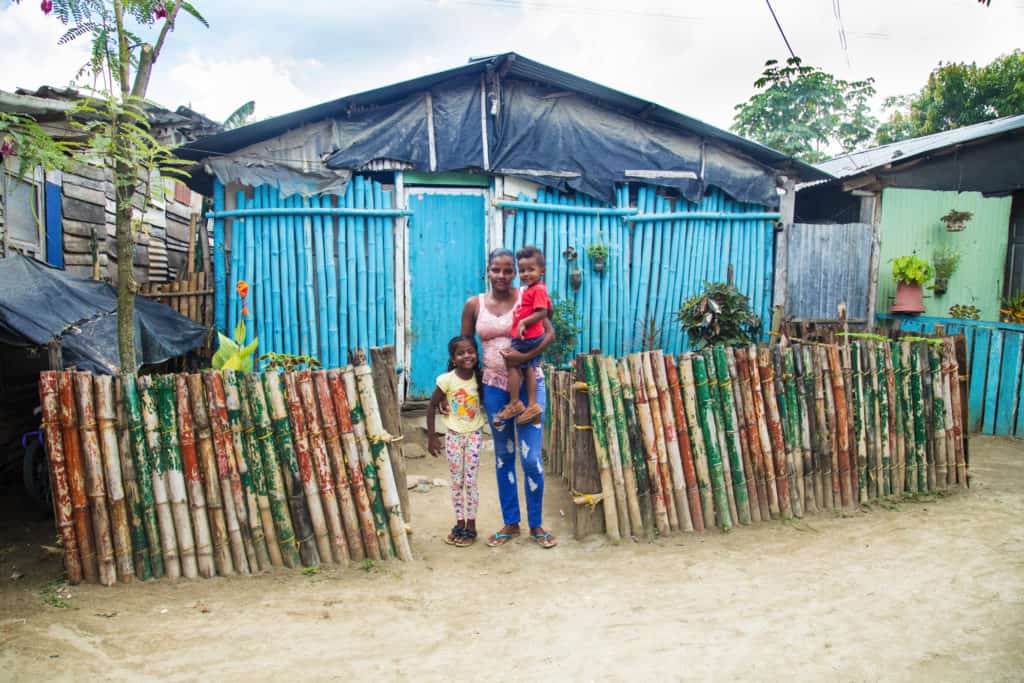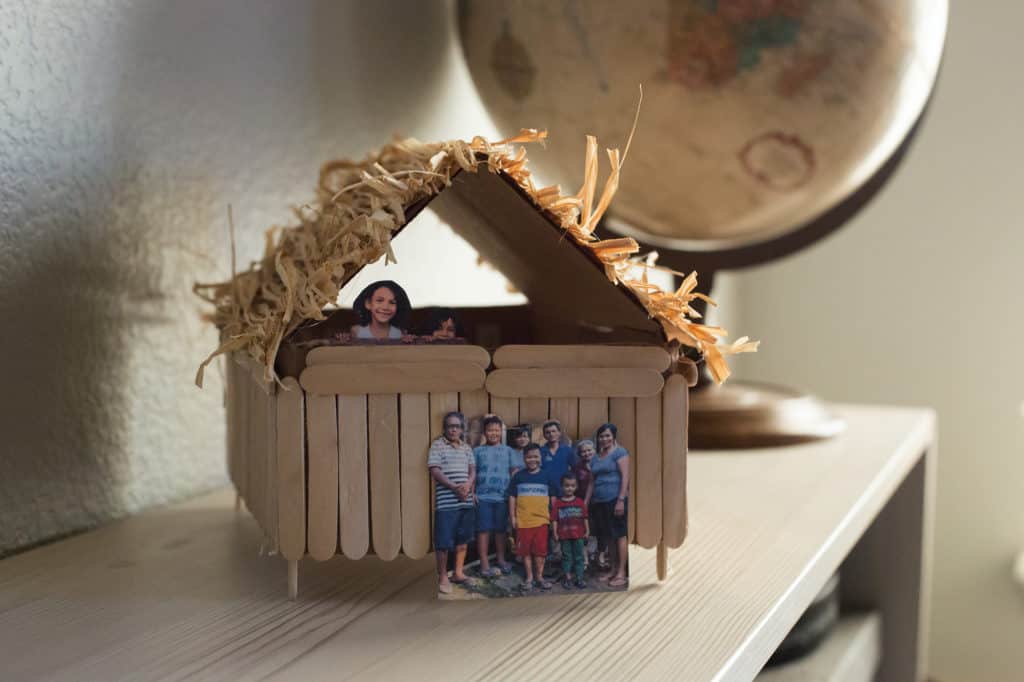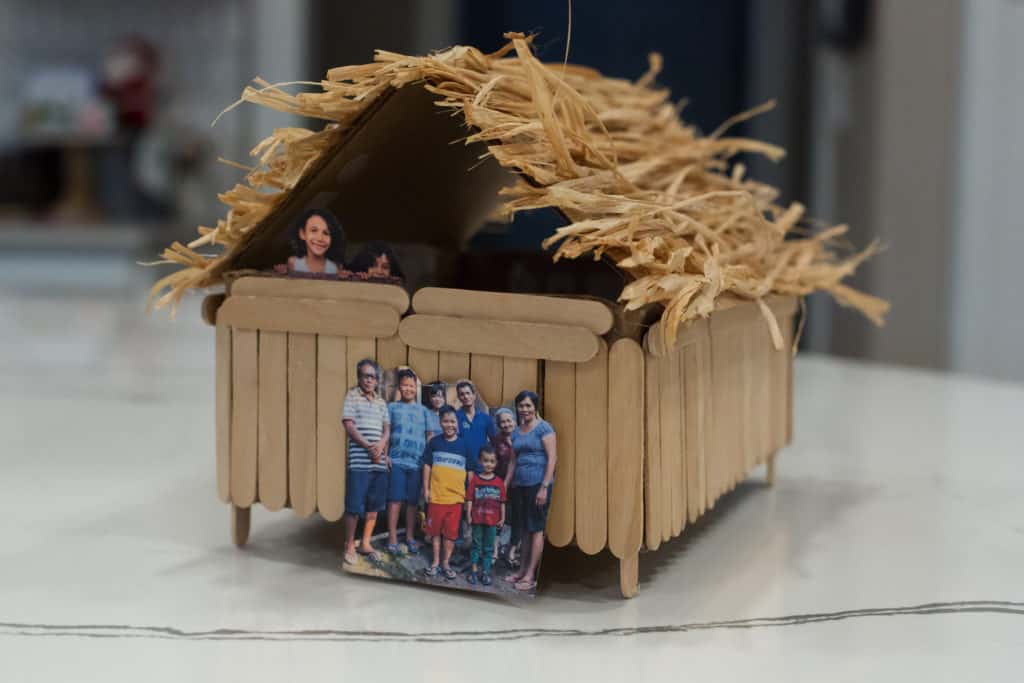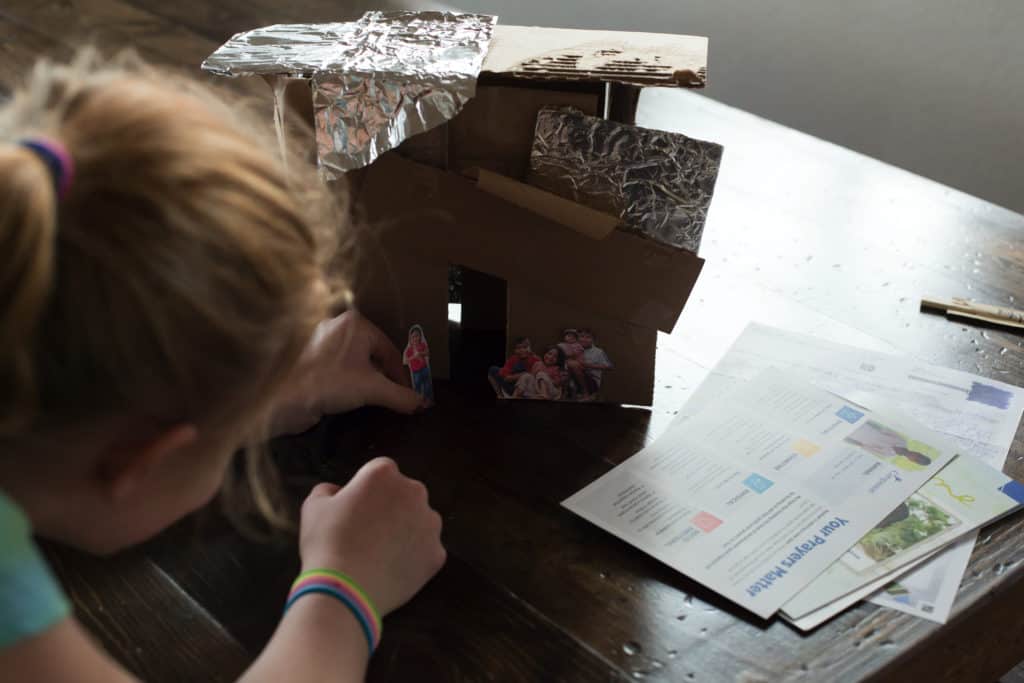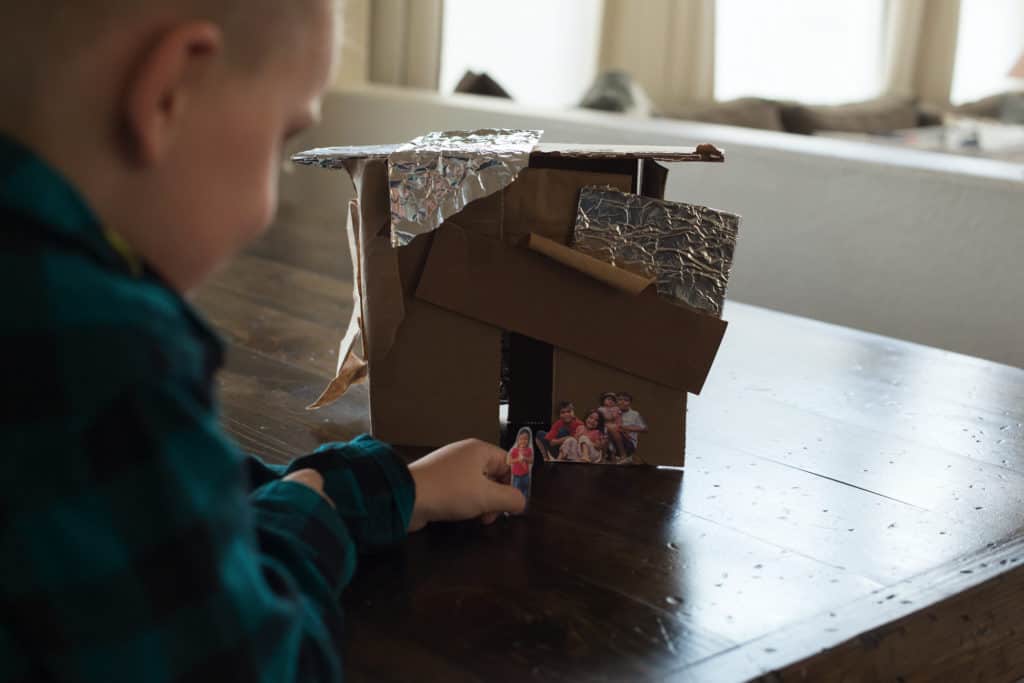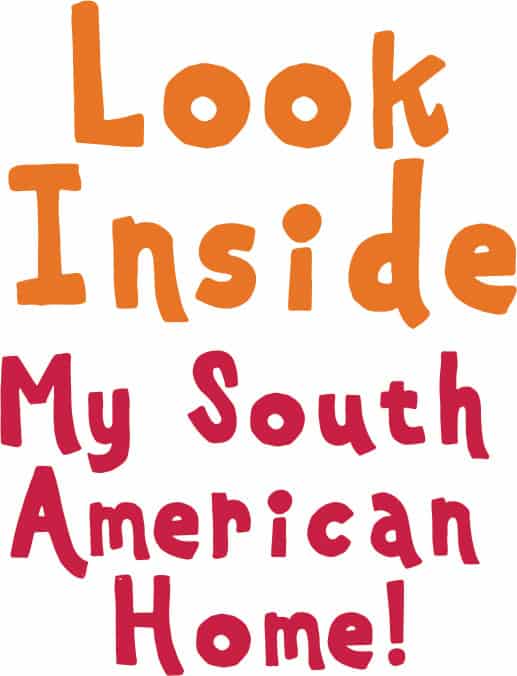
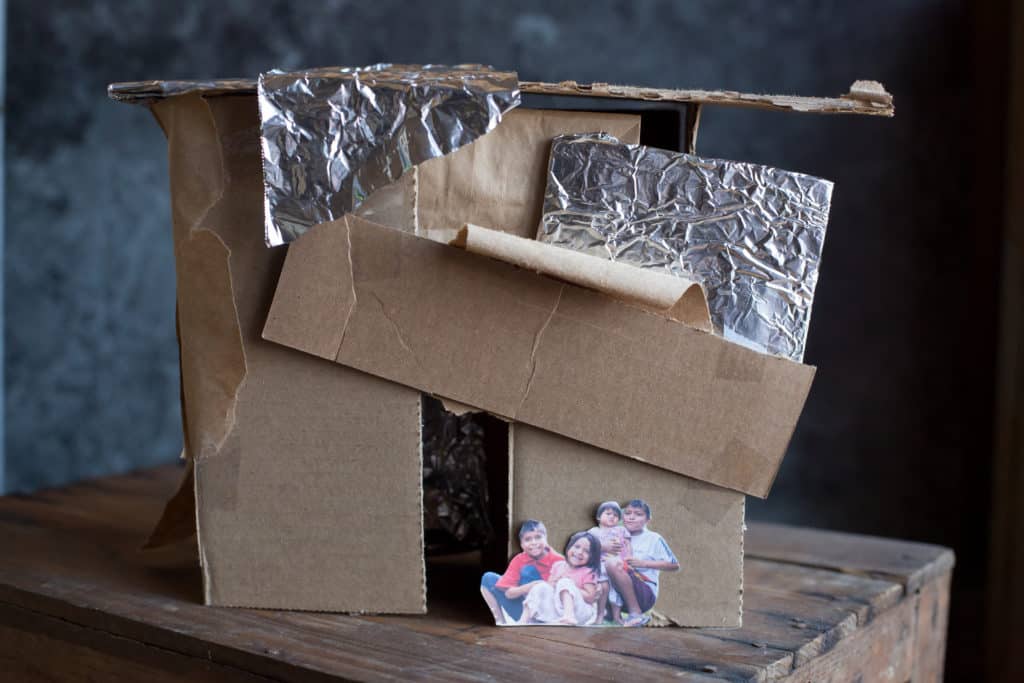
What is your home built out of? Look at the photos below of homes around the world. How are they similar to and different from yours?
Many families in South America do not live in poverty. They have homes that were built a lot like yours — with wood, bricks or other strong materials. But some South American families live in poverty and can’t afford homes made of strong materials. They live in homes built from any materials they can find or afford. Look at the model home above. Would it keep out rain and wind? What might it be like to live in a home like that?
Material Ideas
metal walls or roofs
aluminum foil
wooden boards
ice-pop sticks/craft sticks
mud bricks
construction paper, play dough, clay
thatch roof
straw, grass or leaves
tarps/plastic roofs
recycled plastic bags or sandwich baggies
For this craft, you will build a model — a mini version of a home where a family in poverty might live. First, gather your building materials (get some ideas at the left, but we bet you can think of more). Then, with an adult’s help, build your model home by putting together your materials with hot glue or strong tape.
While you craft your model home, think about the kids who might live there. Kids in South America are just like you — even if their homes look different from yours! Pray that God will provide them with safe, strong homes.
- For a house in Africa, consider making a thatch roof out of strips of construction paper or straw or hay glued to the roof. You can also draw bricks on the walls, since many are made of bricks made of mud.
- South American houses are often VERY colorful, so use lots of colors for the walls, and your brown crayon or marker for the roof, which is often made of tiles.
- A lot of houses in Central America are made out of wood, so you can glue popsicle sticks to the walls of your house to make it nice and sturdy.
- In Asia, a lot of houses have front porches that families spend time on when it’s hot inside. You can also attach two popsicle sticks to your house to represent the stilts houses are on to prevent them from getting flooded.
